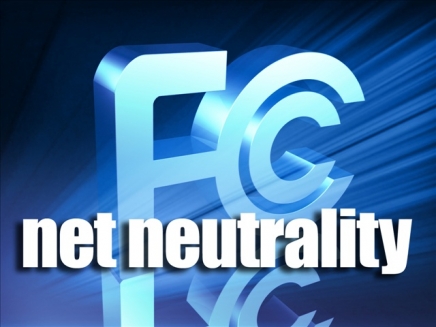 NEWS
NEWS
 NEWS
NEWS
 NEWS
NEWS
![]() A landmark ruling in the Appeals Court has just seen the FCC’s net neutrality rules thrown in the garbage, and it could be bad news for smartphone-wielding internet users in the US . The rules would have meant it was against the law for telecoms companies to favor certain kinds of web traffic ahead of others, but the court ruled that the FCC does not have the authority to enforce them.
A landmark ruling in the Appeals Court has just seen the FCC’s net neutrality rules thrown in the garbage, and it could be bad news for smartphone-wielding internet users in the US . The rules would have meant it was against the law for telecoms companies to favor certain kinds of web traffic ahead of others, but the court ruled that the FCC does not have the authority to enforce them.
In its ruling, the Appeals Court gives the following reason for its decision:
“Given that the Commission has chosen to classify broadband providers in a manner that exempts them from treatment as common carriers, the Communications Act expressly prohibits the Commission from nonetheless regulating them as such. Because the Commission has failed to establish that the anti-discrimination and anti-blocking rules do not impose per se common carrier obligations, we vacate those portions of the Open Internet Order.”
Essentially, what it’s saying is that the FCC doesn’t have the authority to impose its net neutrality laws, because broadband internet is defined as an ‘information service’, as opposed to a ‘common carrier’ service such as standard telephone calls.
So why is this bad news for consumers? Well, without the net neutrality laws in place, it opens up the possibility of telecoms companies like Verizon and AT&T cutting deals with certain websites to serve up their content faster. There’s also the possibility that consumers could end up having to pay to access certain websites too – though at least the carriers would have to tell their customers which sites are being favored.
The battle to preserve net neutrality has been running for several years now, but this latest turn of events does not bode well for smaller websites. Bigger, more popular websites that are willing to pay for preferential treatment will benefit immensely – whilst smaller sites will only end up as the loser. Even so, the FCC must take its share of the blame for the ruling, as it should’ve set out its rules on a more solid legal framework.
Nevertheless, the FCC isn’t planning on throwing in the towel just yet. Just minutes after the ruling, its Chairman Tom Wheeler put out the following statement:
“The D.C. Circuit has correctly held that ‘Section 706 . . . vests [the Commission] with affirmative authority to enact measures encouraging the deployment of broadband infrastructure’ and therefore may ‘promulgate rules governing broadband providers’ treatment of Internet traffic.’”
“I am committed to maintaining our networks as engines for economic growth, test beds for innovative services and products, and channels for all forms of speech protected by the First Amendment. We will consider all available options, including those for appeal, to ensure that these networks on which the Internet depends continue to provide a free and open platform for innovation and expression, and operate in the interest of all Americans.”
There’s also been support from the White House, which quickly issued its own statement on the matter:
“President Obama remains committed to an open internet, where consumers are free to choose the websites they want to visit and the online services they want to use, and where online innovators are allowed to compete on a level playing field based on the quality of their products.”
“As we continue to review the ruling, we remain committed to working with the Federal Communications Commission (FCC), Congress, and the private sector to preserve a free and open Internet.”
Here’s the Appeals Court’s ruling in full:
Support our mission to keep content open and free by engaging with theCUBE community. Join theCUBE’s Alumni Trust Network, where technology leaders connect, share intelligence and create opportunities.
Founded by tech visionaries John Furrier and Dave Vellante, SiliconANGLE Media has built a dynamic ecosystem of industry-leading digital media brands that reach 15+ million elite tech professionals. Our new proprietary theCUBE AI Video Cloud is breaking ground in audience interaction, leveraging theCUBEai.com neural network to help technology companies make data-driven decisions and stay at the forefront of industry conversations.